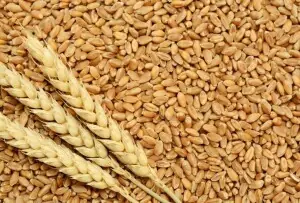There are no sacred cows, says Aurangzeb as Pakistan registers 2.38% GDP growth
8 min readFinance Minister Muhammad Aurangzeb has expressed his intention to tax the “holy cows” as he revealed that Pakistan’s gross domestic product (GDP) stood at 2.38% up from the estimated two per cent.
“There are no sacred cows. Everyone will have to contribute to this economy because schools, hospitals, colleges, and universities can run through philanthropy but the country does not,” he said while responding to a question after presenting the Pakistan Economic Survey in Islamabad on Tuesday.
“The country can only run through tax,” he added.
In FY22-23, the GDP contracted by 0.2% while the Pakistan rupee depreciated by 29%. “Our foreign exchange reserve went down to two weeks of import cover.” As per the survey, the real GDP grew by 2.4% during 2023-24 (July to March) compared to a contraction of 0.2% in 2022-23, but lower than the targeted 3.5%.
The survey is an annual report that charts the country’s economic progress for the outgoing financial year, ie, from July 1, 2023 to June 30, 2024, and is one of the stages of the federal budget process that the public is exposed to.
“There is no plan B, and if there was a plan B, the IMF wouldn’t be called a lender of the last resort,” Aurangzeb said as he shared Prime Minister Shehbaz Sharif’s steps to ensure the nine-month standby agreement is completed.
“Signing of the standby agreement was very important. If we had not done that then we would have been in a different position today,” he said and added that the difficulties on the large-scale manufacturing side were due to the impact of interest rates and the energy equation.
The finance minister, a former CEO of Habib Bank Limited, added that the country’s saviour was agriculture because of the bumper crop. He was of the view that dairy and livestock would remain a “big upside” for the country in the years to come and that agriculture was going to be a “huge lever of growth.”
He assured that the provinces would be given due credit for delivering what they said would deliver. The current account deficit for the next fiscal year was $200 million, he said and added: “The target to have CAD under $1b has come into reality.”
He expressed hope that there would be another surplus after having $3.2 billion worth of remittances.
Aurangzeb appreciated the interim government for taking measures to ensure stability in the currency by stopping hundi hawala and illegal trade via the Afghan border. He also praised the State Bank of Pakistan’s efforts in this regard. “Banks which had exchange companies were asked to open more booths and those who don’t were asked to open.”
The finance minister said: “Satta bazi and speculative activity won’t come again.” He added that the foreign exchange reserves were not quantum but the quality was not funded by death stock.
While speaking about talks with the International Monetary Fund, he said that they were “productive and constructive” against the backdrop of the completion of the nine-month standby arrangement.
“The discipline shown has been accepted. Pakistan can show discipline and we can follow through. We will remain committed to doing structural reforms.”
He called for increasing the tax-to-GDP ratio. Aurangzeb reiterated that there were “no strategic state-owned enterprises (SOEs). “I am very clear this is a Pakistan programme which is being funded by the Fund.”
He shared that the government intended to privatise the Pakistan Agricultural Storage & Services Corporation.
‘There won’t be sacred cows’
When asked, he said that the government would see why the Track and System did not work. Moreover, the taxation system would be digitised to minimise human intervention.
“As far as I am concerned, there are no sacred cows. There are no sacred cows. Everyone will have to contribute to this economy because through philanthropy can run schools, hospitals, colleges, and universities but it cannot run the country,” he said.
“The country can only run through tax,” he added.
According to Aurangzeb, the power theft in the sector was around Rs500 billion. The government has to improve the corporate governance of power distribution companies (DISCOs).
“We are going to take these DISCOs to the private sector,” he said and stressed that they cannot remain in the public sector.
State Finance Minister Ali Pervaiz added that plants have the capacity to provide electricity to everyone. “A few hours of load-shedding are being done on losses feeders to control the circular debt,” he said and described it as a financial problem.
Share of foreign exchange reserves
When asked, he did not exact statistics about the amount of funds taken from the market for the foreign exchange reserves.
“A significant amount has come from open market operations,” Aurangzeb said.
He agreed that some of the National Economic Council decisions were reversed. The finance minister was of the view that the elected government should revise some of the projects.
Repayment won’t be an issue: Aurangzeb
In response to a query, he said that the repayment of loans would not be an issue.
“The easiest way to describe it is the way we have managed 2023-24. It’s going to be the same pattern more or less we see in 2024-25. We will see rollovers,” he said about the economy’s outlook for the next fiscal year.
He was of the view that some of the commercial bank borrowing would coming back in. “When we went through a delayed programme in the last fiscal year, some of the appetite disappeared especially from the Middle East commercial banks and that the peak they used to have of $2 billion to $2.5 billion, these were short term trade finance supporting the balance of payment.”
But those went down to zero and the country had to repay them after the delayed programme, resulting in low ratings.
“On the external financing side, we are entering the year on the much stronger note than we were at the beginning of the last year. We will follow almost the same pattern in terms of our repayment schedule. The repayment is not going to be a big issue for next fiscal year. I do see some of the commercial bank borrowing coming in.”
Aurangzeb added that the country was “keen” to go for the inaugural of Panda bond during next fiscal year to have diversified funding base. “On the external finance side, once the Fund programme in place I don’t see that as a big challenge.”
Where Pakistan saw progress and decline in growth
- Machinery & Equipments recorded the highest growth of 61.5 per cent, followed by Pharmaceuticals (23.2%), Furniture (23.1%), Wood products (12.1%), Chemicals (8.0%), Wearing apparel (5.4%), Leather products (5.3%), Coke & Petroleum products (4.9%), Rubber products (3.6%) and Food (1.7%).

-
The sectors which recorded negative growth are Automobiles (37.4%), Tobacco (33.6%), Computer, electronic & optical products (16.0%), Textile (8.3%), Electrical equipment (7.5%), Non-metallic mineral products (3.9%), Beverages (3.4%), Iron & steel products (2.2%) and Paper & Board (2.0%).
-
The Mining and Quarrying sector posted growth of 4.9 per cent during FY2024 against a contraction of 3.3 per cent last year.
-
Large Scale Manufacturing (LSM) declined by 0.1 per cent during Jul-Mar FY2024 compared to a decline of 7.0 per cent last year.
Government expenditures increased
In FY2024, the consolidation measures boosted revenues, however, expenditure remained under pressure due to higher markup payments.
The fiscal deficit stood at 3.7 per cent of GDP during July-March FY2024 the same as last year.
- Measures to control non-mark-up spending and revenue mobilization helped in improving the primary surplus to Rs1615.4 billion (1.5% of GDP) during July-March FY2024 from Rs503.8 billion (0.6% of GDP) last year.

-
Total expenditure increased by 36.6 per cent to Rs13,682.8 billion in July to March FY2024 from Rs10,016.9 billion last year. Current expenditures grew by 33.4 per cent to Rs12,333.3 billion during July-March FY2024 from Rs9,244.6 billion last year.
-
Total development expenditures grew by 14.2 per cent to Rs.1,158.1 billion against Rs1,014.0 billion last year. The Federal PSDP (including development grants to provinces) stood at Rs 321.6 billion during July-March FY2024 against Rs328.8 billion last year, showing a decline of 2.2 per cent.
-
Total revenues grew by 41.0 per cent to Rs9,780.4 billion in July-March FY2024 against Rs6,938.2 billion last year. Non-tax collection grew by 90.7 percent to Rs2,517.9 billion during July-March FY2024 against Rs1,320.5 billion last year.
-
Total tax collection grew by 29.3 per cent to Rs7,262.5 billion during July-March FY2024 against Rs5,617.7 billion last year.
Planning commission’s estimates
According to the Planning Commission’s estimations made in the Annual Plan Coordination Committee (APCC), Pakistan’s economy “faced significant challenges at the beginning of 2023-24, primarily due to lagged impacts of economic disruptions of the previous year.” But the economy moderately recovered in 2023-24 and grew by 2.4%.
In the years 2023-24, the primary driver of growth was the agriculture sector, growing by 6.3%, owing to bumper outputs of wheat, cotton and rice.
The industrial sector grew by 1.2% mainly due to a slowdown in large-scale manufacturing activities. There was growth in mining and quarrying, small-scale manufacturing, and construction.
The services sector also registered 1.2% growth as wholesale and retail trade experienced a mere 0.3% growth. The transport, storage and communications sector also recorded a low growth of 1.2% due to subdued demand.
Total revenue collection grew by 41% during July-March 2023-24 that outpaced the 36.6% growth of total expenditure. Both tax and non-tax revenues grew by 29.3% and 89.8%, respectively. Markup expenditure constituted 40% of the total expenditure.
During July-April 2023-24, average inflation was recorded at 26% as compared to 28.2% in the same period of last year. A continuously declining inflationary trend has been observed since January 2024.
For the latest news, follow us on Twitter @Aaj_Urdu. We are also on Facebook, Instagram and YouTube.
























Comments are closed on this story.